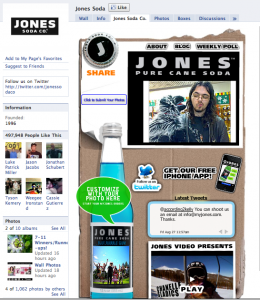 So if you’re in marketing, chances are you’ve heard a lot about people trying some crazy things to get noticed or boost their business.
So if you’re in marketing, chances are you’ve heard a lot about people trying some crazy things to get noticed or boost their business.
One of the worst ideas I’ve ever heard is people who post fake reviews on places that ask to rate a business. Let’s say it’s Yelp.com. And let’s say some unsuspecting business owner thinks “everyone does it” and posts under a fake name a glowing review of their own business.
They may think they are helping their business, they may think they’re cleverly “gaming” the system. They may even think they’ve done a bit of “marketing” — and then move on to another task. But in reality they are just cheating themselves. (I know that sounds nanny-ish, but stick with me for a minute.)
Most business owners know that ultimately they have to meet their customers’/clients’ expectations to succeed. So good — or bad — reviews are just another way of getting that feedback you need. A good or bad review will often tell you things you may not have known about how your customers/clients perceive your business.
Sure, it’s no fun to read negative comments. It’s up to you to evaluate the validity of comments (yes, there are plenty of jerks out there); but ignoring them won’t help you. And a positive mention (I guarantee) will make you feel it’s worthwhile.
Also, if you’re more concerned with gaming the system than actually using it, you aren’t in “listen mode.” And if you’re not listening, you can’t respond. And if you’re not responding, you’re not reaching out to your customers.
Marketing, ultimately, is about reaching out. And these days, no business can afford to reach out and appear uncaring and unmoved. Your customers already talk about you anyway – you need to be involved in that conversation.

